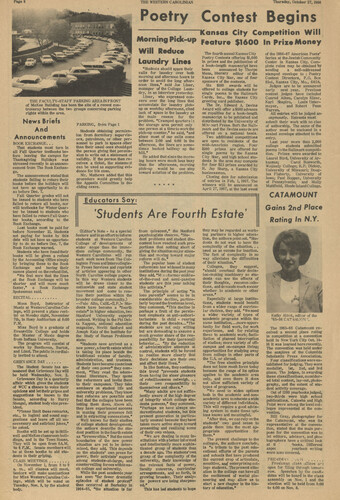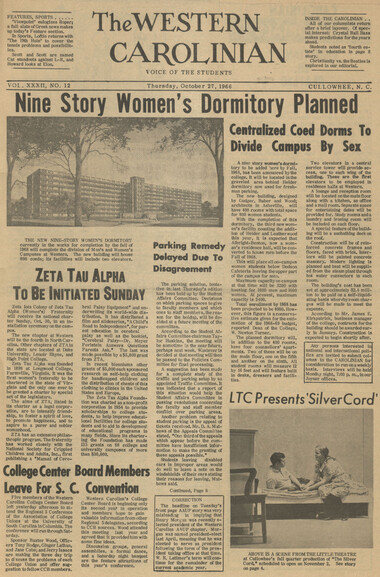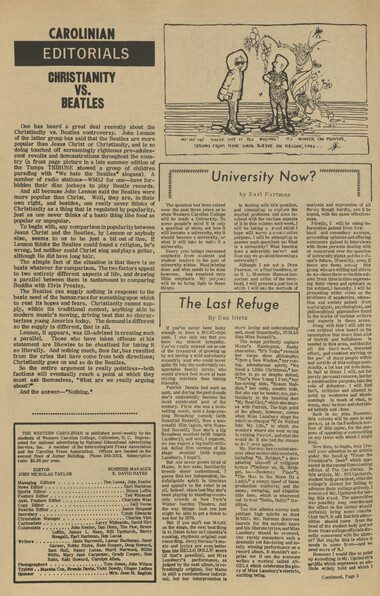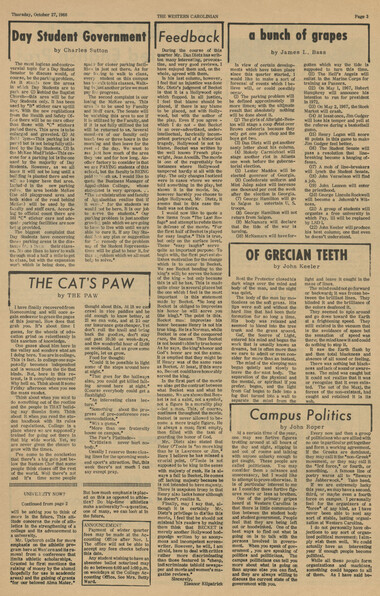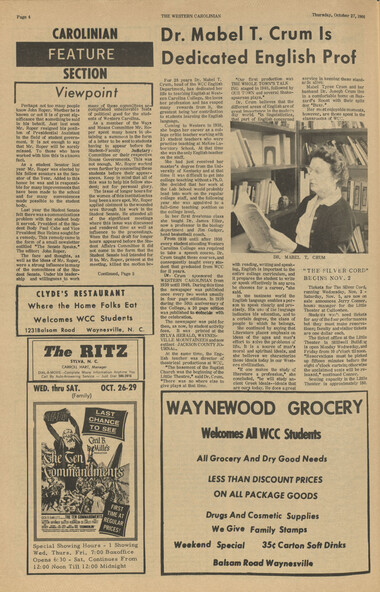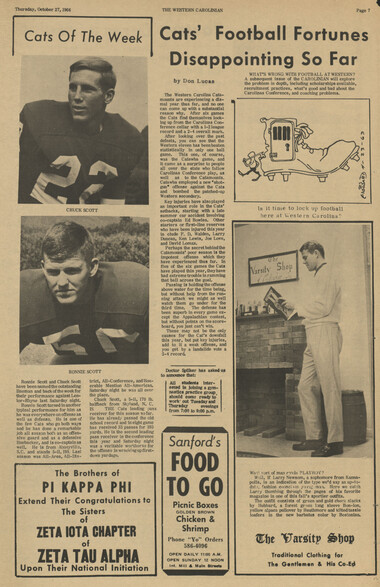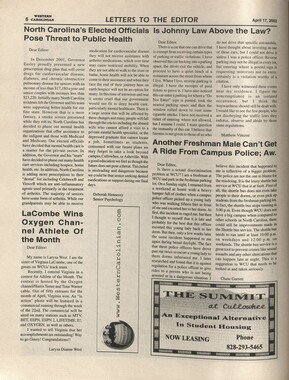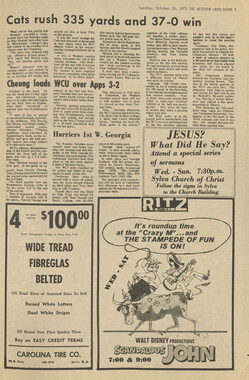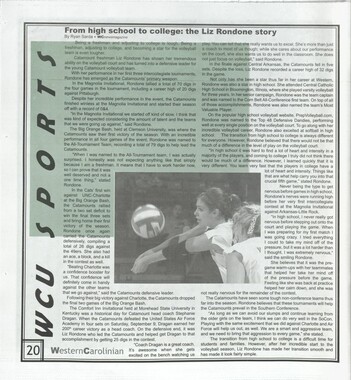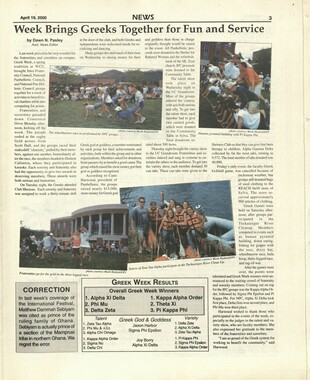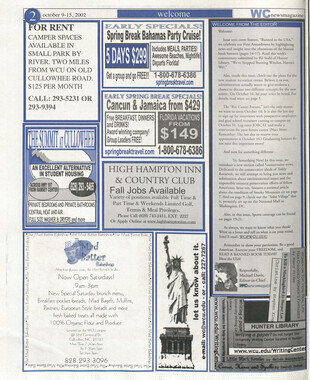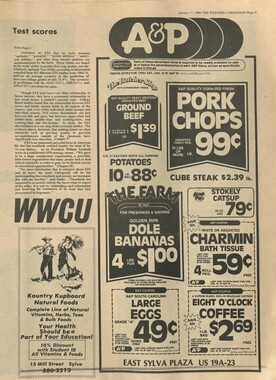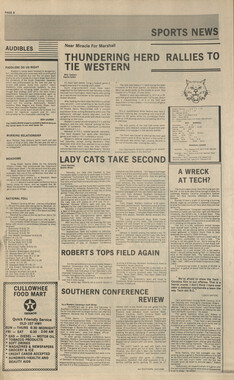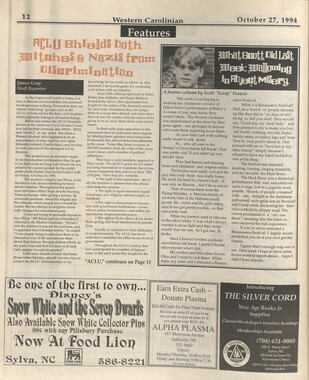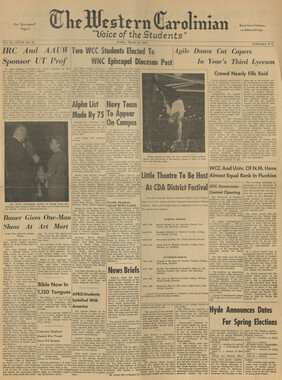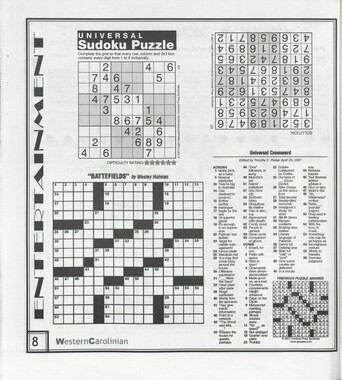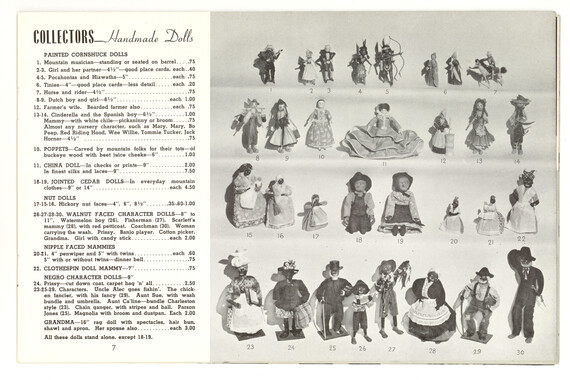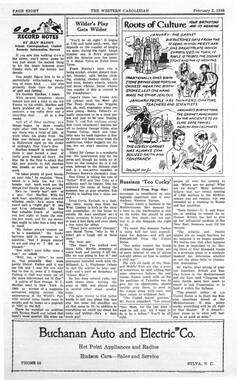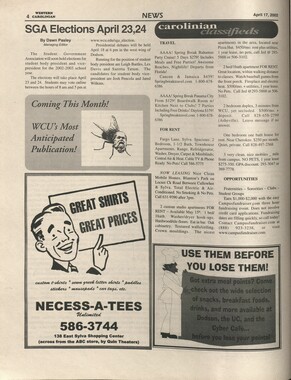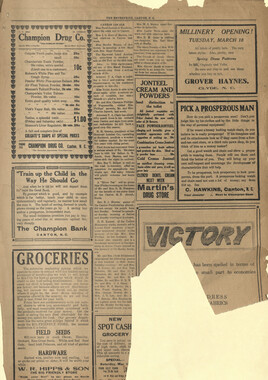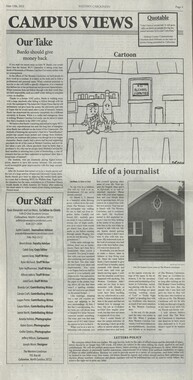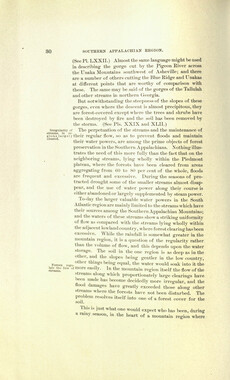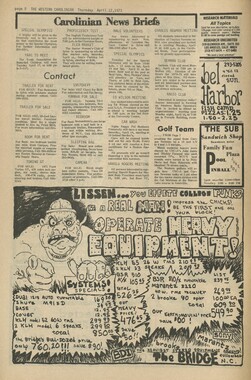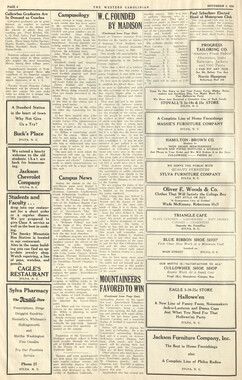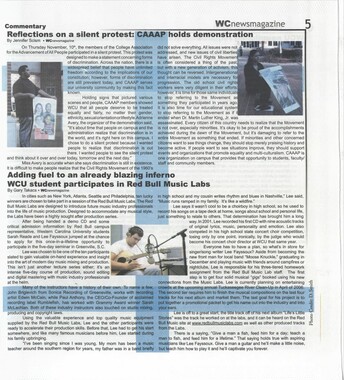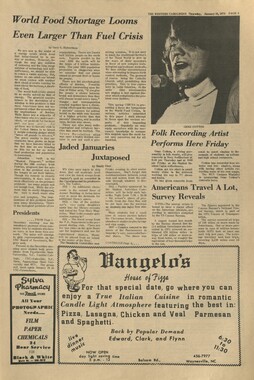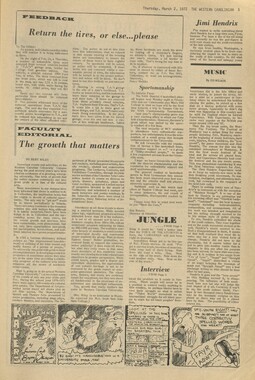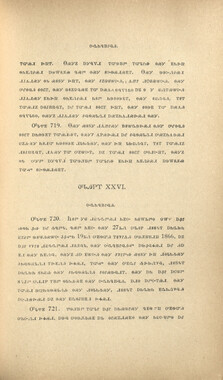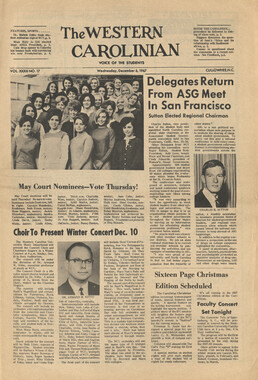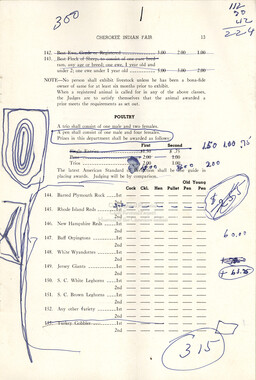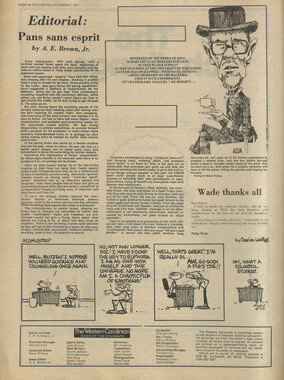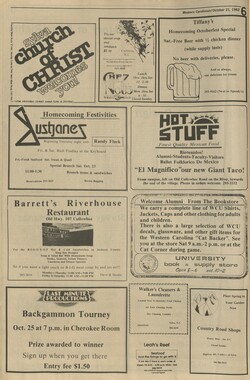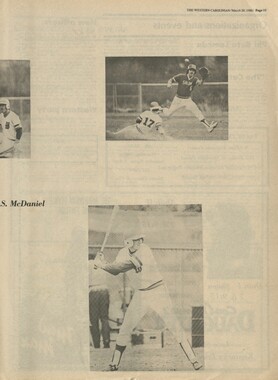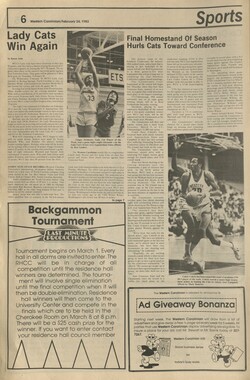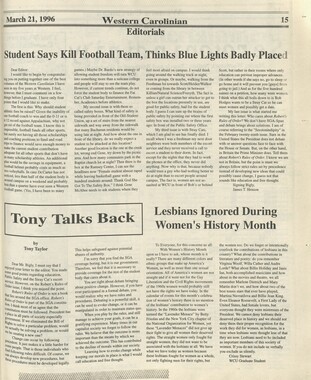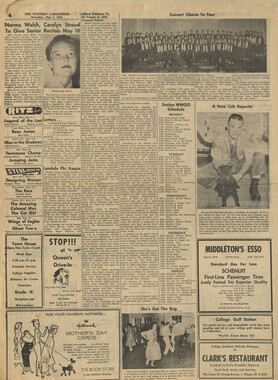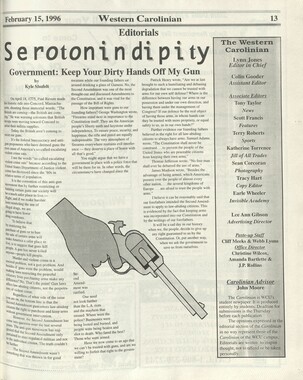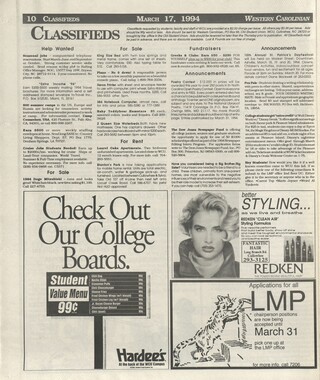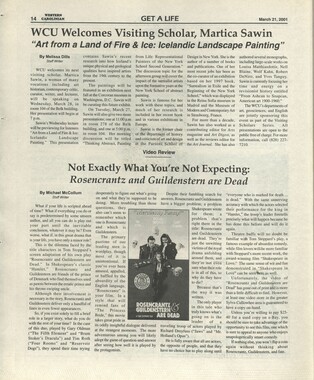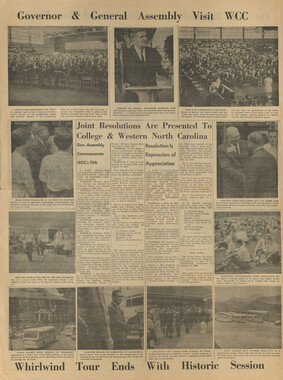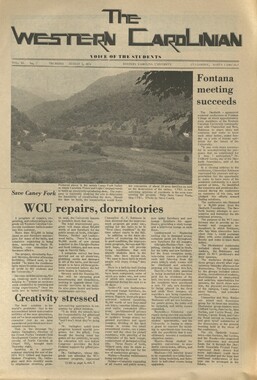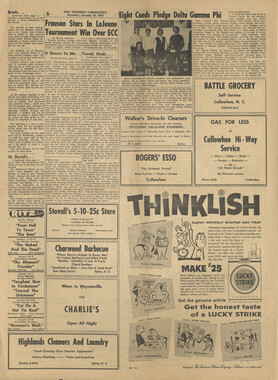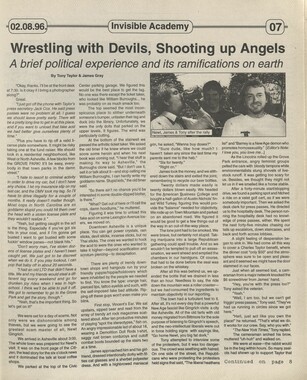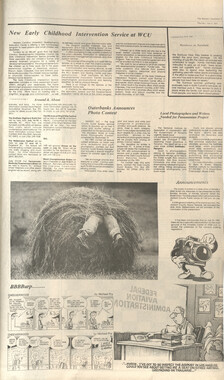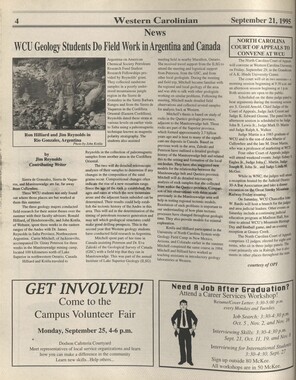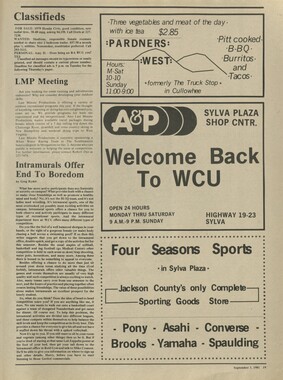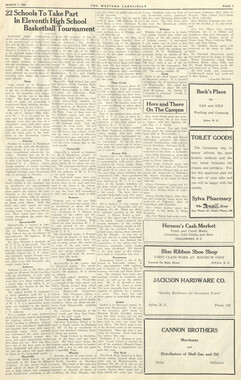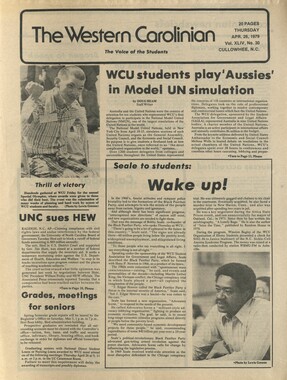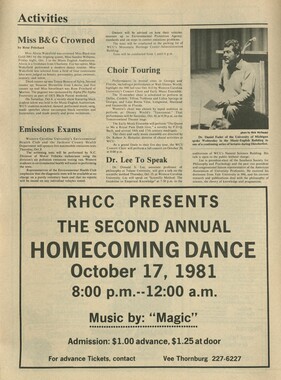Western Carolina University (21)
View all
- Canton Champion Fibre Company (2308)
- Cherokee Traditions (291)
- Civil War in Southern Appalachia (165)
- Craft Revival (1942)
- George Masa Collection (137)
- Great Smoky Mountains - A Park for America (3080)
- Highlights from Western Carolina University (422)
- Horace Kephart (973)
- Journeys Through Jackson (159)
- LGBTQIA+ Archive of Jackson County (89)
- Oral Histories of Western North Carolina (318)
- Picturing Appalachia (6617)
- Stories of Mountain Folk (413)
- Travel Western North Carolina (153)
- Western Carolina University Fine Art Museum Vitreograph Collection (129)
- Western Carolina University Herbarium (92)
- Western Carolina University: Making Memories (738)
- Western Carolina University Publications (2491)
- Western Carolina University Restricted Electronic Theses and Dissertations (146)
- Western North Carolina Regional Maps (71)
- World War II in Southern Appalachia (131)
University of North Carolina Asheville (6)
View all
- Allanstand Cottage Industries (62)
- Appalachian National Park Association (53)
- Bennett, Kelly, 1890-1974 (1463)
- Berry, Walter (76)
- Brasstown Carvers (40)
- Carver, George Washington, 1864?-1943 (26)
- Cathey, Joseph, 1803-1874 (1)
- Champion Fibre Company (233)
- Champion Paper and Fibre Company (297)
- Cherokee Indian Fair Association (16)
- Cherokee Language Program (22)
- Crowe, Amanda (40)
- Edmonston, Thomas Benton, 1842-1907 (7)
- Ensley, A. L. (Abraham Lincoln), 1865-1948 (275)
- Fromer, Irving Rhodes, 1913-1994 (70)
- George Butz (BFS 1907) (46)
- Goodrich, Frances Louisa (120)
- Grant, George Alexander, 1891-1964 (96)
- Heard, Marian Gladys (60)
- Kephart, Calvin, 1883-1969 (15)
- Kephart, Horace, 1862-1931 (313)
- Kephart, Laura, 1862-1954 (67)
- Laney, Gideon Thomas, 1889-1976 (439)
- Masa, George, 1881-1933 (61)
- McElhinney, William Julian, 1896-1953 (44)
- Niggli, Josephina, 1910-1983 (10)
- North Carolina Park Commission (105)
- Osborne, Kezia Stradley (9)
- Owens, Samuel Robert, 1918-1995 (11)
- Penland Weavers and Potters (36)
- Roberts, Vivienne (15)
- Roth, Albert, 1890-1974 (142)
- Schenck, Carl Alwin, 1868-1955 (1)
- Sherrill's Photography Studio (2565)
- Southern Highland Handicraft Guild (127)
- Southern Highlanders, Inc. (71)
- Stalcup, Jesse Bryson (46)
- Stearns, I. K. (213)
- Thompson, James Edward, 1880-1976 (226)
- United States. Indian Arts and Crafts Board (130)
- USFS (683)
- Vance, Zebulon Baird, 1830-1894 (1)
- Weaver, Zebulon, 1872-1948 (58)
- Western Carolina College (230)
- Western Carolina Teachers College (282)
- Western Carolina University (2008)
- Western Carolina University. Mountain Heritage Center (18)
- Whitman, Walt, 1819-1892 (10)
- Wilburn, Hiram Coleman, 1880-1967 (73)
- Williams, Isadora (3)
- Cain, Doreyl Ammons (0)
- Crittenden, Lorraine (0)
- Rhodes, Judy (0)
- Smith, Edward Clark (0)
- Appalachian Region, Southern (3032)
- Asheville (N.C.) (1945)
- Avery County (N.C.) (26)
- Blount County (Tenn.) (195)
- Buncombe County (N.C.) (1680)
- Cherokee County (N.C.) (283)
- Clay County (N.C.) (556)
- Graham County (N.C.) (238)
- Great Smoky Mountains National Park (N.C. and Tenn.) (525)
- Haywood County (N.C.) (3573)
- Henderson County (N.C.) (70)
- Jackson County (N.C.) (4925)
- Knox County (Tenn.) (35)
- Knoxville (Tenn.) (13)
- Lake Santeetlah (N.C.) (10)
- Macon County (N.C.) (421)
- Madison County (N.C.) (216)
- McDowell County (N.C.) (39)
- Mitchell County (N.C.) (135)
- Polk County (N.C.) (35)
- Qualla Boundary (982)
- Rutherford County (N.C.) (78)
- Swain County (N.C.) (2185)
- Transylvania County (N.C.) (270)
- Watauga County (N.C.) (12)
- Waynesville (N.C.) (86)
- Yancey County (N.C.) (72)
- Aerial Photographs (3)
- Aerial Views (60)
- Albums (books) (4)
- Articles (1)
- Artifacts (object Genre) (228)
- Bibliographies (1)
- Biography (general Genre) (2)
- Cards (information Artifacts) (38)
- Clippings (information Artifacts) (192)
- Copybooks (instructional Materials) (3)
- Crafts (art Genres) (622)
- Depictions (visual Works) (21)
- Design Drawings (1)
- Digital Moving Image Formats (2)
- Drawings (visual Works) (185)
- Envelopes (101)
- Exhibitions (events) (1)
- Facsimiles (reproductions) (1)
- Fiction (general Genre) (4)
- Financial Records (12)
- Fliers (printed Matter) (67)
- Glass Plate Negatives (381)
- Guidebooks (2)
- Internegatives (10)
- Interviews (823)
- Land Surveys (102)
- Letters (correspondence) (1045)
- Manuscripts (documents) (618)
- Maps (documents) (177)
- Memorandums (25)
- Minutes (administrative Records) (59)
- Negatives (photographs) (6090)
- Newsletters (1290)
- Newspapers (2)
- Notebooks (8)
- Occupation Currency (1)
- Paintings (visual Works) (1)
- Pen And Ink Drawings (1)
- Periodicals (194)
- Personal Narratives (10)
- Photographs (12977)
- Plans (maps) (1)
- Poetry (6)
- Portraits (4568)
- Postcards (329)
- Programs (documents) (181)
- Publications (documents) (2444)
- Questionnaires (65)
- Relief Prints (26)
- Sayings (literary Genre) (1)
- Scrapbooks (282)
- Sheet Music (2)
- Slides (photographs) (402)
- Songs (musical Compositions) (2)
- Sound Recordings (802)
- Specimens (92)
- Speeches (documents) (18)
- Tintypes (photographs) (8)
- Transcripts (329)
- Text Messages (0)
- A.L. Ensley Collection (275)
- Appalachian Industrial School Records (7)
- Appalachian National Park Association Records (336)
- Axley-Meroney Collection (2)
- Bayard Wootten Photograph Collection (20)
- Bethel Rural Community Organization Collection (7)
- Blumer Collection (5)
- C.W. Slagle Collection (20)
- Canton Area Historical Museum (2110)
- Carlos C. Campbell Collection (462)
- Cataloochee History Project (64)
- Cherokee Studies Collection (4)
- Daisy Dame Photograph Album (5)
- Daniel Boone VI Collection (1)
- Doris Ulmann Photograph Collection (112)
- Elizabeth H. Lasley Collection (1)
- Elizabeth Woolworth Szold Fleharty Collection (4)
- Frank Fry Collection (95)
- George Masa Collection (173)
- Gideon Laney Collection (452)
- Hazel Scarborough Collection (2)
- Hiram C. Wilburn Papers (28)
- Historic Photographs Collection (236)
- Horace Kephart Collection (861)
- Humbard Collection (33)
- Hunter and Weaver Families Collection (1)
- I. D. Blumenthal Collection (4)
- Isadora Williams Collection (4)
- Jesse Bryson Stalcup Collection (47)
- Jim Thompson Collection (224)
- John B. Battle Collection (7)
- John C. Campbell Folk School Records (80)
- John Parris Collection (6)
- Judaculla Rock project (2)
- Kelly Bennett Collection (1482)
- Love Family Papers (11)
- Major Wiley Parris Civil War Letters (3)
- Map Collection (12)
- McFee-Misemer Civil War Letters (34)
- Mountain Heritage Center Collection (4)
- Norburn - Robertson - Thomson Families Collection (44)
- Pauline Hood Collection (7)
- Pre-Guild Collection (2)
- Qualla Arts and Crafts Mutual Collection (12)
- R.A. Romanes Collection (681)
- Rosser H. Taylor Collection (1)
- Samuel Robert Owens Collection (94)
- Sara Madison Collection (144)
- Sherrill Studio Photo Collection (2558)
- Smoky Mountains Hiking Club Collection (616)
- Stories of Mountain Folk - Radio Programs (374)
- The Reporter, Western Carolina University (510)
- Venoy and Elizabeth Reed Collection (16)
- WCU Gender and Sexuality Oral History Project (36)
- WCU Mountain Heritage Center Oral Histories (25)
- WCU Oral History Collection - Mountain People, Mountain Lives (71)
- WCU Students Newspapers Collection (1923)
- Western North Carolina Tomorrow Black Oral History Project (69)
- William Williams Stringfield Collection (2)
- Zebulon Weaver Collection (109)
- African Americans (390)
- Appalachian Trail (35)
- Artisans (521)
- Cherokee art (84)
- Cherokee artists -- North Carolina (10)
- Cherokee language (21)
- Cherokee pottery (101)
- Cherokee women (208)
- Church buildings (190)
- Civilian Conservation Corps (U.S.) (111)
- College student newspapers and periodicals (2012)
- Dams (108)
- Dance (1023)
- Education (222)
- Floods (63)
- Folk music (1015)
- Forced removal, 1813-1903 (2)
- Forest conservation (220)
- Forests and forestry (1198)
- Gender nonconformity (4)
- Great Smoky Mountains National Park (N.C. and Tenn.) (181)
- Hunting (47)
- Landscape photography (25)
- Logging (122)
- Maps (83)
- Mines and mineral resources (9)
- North Carolina -- Maps (18)
- Paper industry (38)
- Postcards (255)
- Pottery (135)
- Railroad trains (72)
- Rural electrification -- North Carolina, Western (3)
- School integration -- Southern States (2)
- Segregation -- North Carolina, Western (5)
- Slavery (5)
- Sports (452)
- Storytelling (243)
- Waterfalls -- Great Smoky Mountains (N.C. and Tenn.) (66)
- Weaving -- Appalachian Region, Southern (280)
- Wood-carving -- Appalachian Region, Southern (328)
- World War, 1939-1945 (173)
Western Carolinian Volume 32 Number 12
Item
Item’s are ‘child’ level descriptions to ‘parent’ objects, (e.g. one page of a whole book).
-
-
Page 8 THE WESTERN CAROLINIAN Thursday, October 27, 1966 Poetry Contest Begins ' " Kansas City Competition Will Morning Pick-up Faatlire $1600 In Prize Money Will Reduce Laundry Lines THE FACULTY-STAFF PARKING AREA IN FRONT of McKee Building has been the site of a recent controversy between the two groups concerning parking rights within the area. News Briefs And Announcements BOOK EXCHANGE. . . That students must turn in all Fall Quarter textbooks before leaving the campus for Thanksgiving Holidays was stressed recently in an announcement from The Book Exchange. The announcement stated that students failing to return their books before the holidays will not have an opportunity to do so before Dec. 7. Fall Quarter grades will not be issued to students who have failed to return all books, nor will textbooks for Winter Quarter be issued to students who have failed to return Fall Quarter books, according to the Book Exchange. Lost books must be paid for before November 21. Students not paying for books by this date will not have an opportunity to do so before Dec. 7, the Book Exchange warned. Students who have found their books will be given a refund by the Accounting Office simply by bringing these to the Book Exchange and having their names placed on the refund list. "We feel sure that the lines at the Book Exchange will be shorter and will move much faster," a Book Exchange Spokesman said. RECITAL Mona Boyd, Instructor of Music at Western Carolina College, will present a piano reci- tal on Monday night, November 7th, In Hoey Auditorium at 8:00 P.M. Miss Boyd is a graduate of Evansville College and holds the Master of Music degree from Indiana University. The program will consist of works by Beethoven, Bartok, and Liszt. The public is cordially invited to attend. GRIEVANCE DAY The Student Senate has announced that Grievance Day will be held Wednesday, Nov. 2. Grievance Day is a quarterly affair which gives the students of WCC a chance to voice their opinions and let their gripes and suggestions be known to the Senate, according to Barry Steagal, student body vice president ■Please limit these remarks, etc., to logical and sound suggestions and leave off all unnecessary and satirical jokes,* ' he asked. Booths will be set up in Stillwell and McKee classroom buildings, and in the Town House. They will be open from 8A.M. to 4 PJHU Senate members will be at these booths to aid students in their griping. CLASS MEETINGS On November 1, from 8 to 9 a. m., all classes will meet. Seniors will make nominations for Miss Western Carolina College, which will be voted on Tuesday, Nov. 8, by the student body. PARKING, from Page 1 Students obtaining permission from dormitory supervisors, patrolmen, or other personnel to park in spaces other than their usual ones should get the person giving that permission to write out a statement of validity. If the person then receives a ticket, the statement can be used as supporting evidence for his case. Mr. Mathews added that this procedure would greatly help the Appeals Committee in deciding cases. i ■ 111 ■ i ■ > 111 ( i The fourth annual Kansas City Poetry Contests offering $1,600 in prizes and the publication of a book-length manuscript have been announced by Thorpe Menn, literary editor of the Kansas City Star, one of four sponsors of the contests. Six $100 awards will be offered to college students for single poems in the Hallmark Cards, Inc., the Kansas City greeting card publisher. The Dr. Edward A. Devins Award will offer a $500 advance on royalties for a book-length manuscript to be published and distributed by the University of Missouri Press. Both the Hallmark and the Devins awards are offered on a national basis. Two additional competitions are open to residents of the mid-American region. Four $100 prizes are offered for single poems by the Kansas City Star, and high school students in the area may compete for four $25 prizes awarded by H. Jay Sharp, a Kansas City businessman. Closing date for submission of entries is Feb. 1, 1967. The winners will be announced on April 27,1967, at the last event [ramiimuiimiiimmummnnnnnw "Students should space their calls for laundry over both morning and afternoon hours in order to avoid the long afternoon lines," said Joe Liner, manager of the College Laundry, in an Interview yesterday. Liner, who expressed concern over the long lines that accumulate for laundry pickup on weekday afternoons, cited lack of space in the laundry as the main reason for the problem. "Cramped quarters In the storage area permit only one person at a time to work the pick-up counter." he said, "and since most of our calls come between 2:00 and 4:00 in the afternoon, the lines are sometimes backed halfway up the hill." He added that since the morning hours were much less busy than the afternoons, morning pick-up would be one step toward solution of the problem. * * * * * Educators Say; 'Students Are Fourth Estate1 (Editor's Note - As a special feature and in an effort to inform students at Western Carolina College of developments of wider scope than the immediate college community, the Western Carolinian will run each week news from The Collegiate Press and Intercollegiate Press Services and reprints of articles appearing in other North Carolina college papers. In this way Western students will be drawn closer to the nationwide and state student movement and come to realize their position within the broader college community.) —Palo Alto, Calif.-a.P.)- Students have become a "fourth estate" in higher education, two Stanford University experts contend. Writing in the Phi Delta Kappan, national education magazine, Nevitt Sanford and Joseph Katz of the Institute for the Study of Human Problems state: "Students nave arrived as a new power, a fourth estate which is taking its place beside the traditional estates of faculty, administration, and trustees. Students have become conscious of their own power" they comment. "They read the educational literature. They quote the reformers and invite them to their campuses. They take seminars on student life and university problems. They know that reforms are possible and feel that the colleges have been letting them down. Above all, they have experienced success in making their presence felt and in extracting concessions." Well known for their studies of college student development, the authors describe the student position in the fourth estate as "irreversible." But the exact boundaries of the new power situation are yet to be determined, they add. This depends on the students' own press for power, their activists* support among students-at-large, and countervailing forces within each college and university. While the past academic year has seen "far fewer dramatic episodes of student protest" than occurred at Berkeley in 1964-65, "the situation is far from quiescent," the Stanford psychologists observe. "Student problems and student discontent have reached such proportions that nothing short of giving the situation major attention and moving toward major reform will do." The popular base of student reformism has widened in many institutions during the past year they add. "M'.v.! former middle- of-the-road and semi-passive students are this year talking like activists." The principle of acting "in loco parentis" seems to be in considerable decline, particularly beyond the freshman level, they comment. "This decline is perhaps a fruit of the persistent emphasis on anti-authoritarianism In child - rearing during the past decades..."The students are not only willing but are demanding to assume a much greater share of the responsibility for their (personal) behavior.... "By the reduction of administrative attempts at control, students will be forced to realize more clearly that their decisions are their own and affect their lives." In like fashion, they continue, this trend "prevents students from having the sheer pleasure of rebelliousness outweigh. .. their own responsibility to themselves and others." "Many adults are not sufficiently aware of the high degree of integrity which college students possess," they comment. ■Perhaps we have always underestimated students, but this present generation is particularly unusual because they have taken more active steps toward presenting and realizing some of their own values. "We are dealing In many institutions with a better informed and intellectually more sophisticated group of students than a decade ago. The students'own grasp of the complexity of the university, their knowledge of the relevant facts of power, faculty concerns, curricular arrangements, and so forth, is growing broader. Their analytic powers are being sharpened.* This has led students to hope of the 1966-67 American Poets' Series at the Jewish Community Center in Kansas City. Complete rules may be obtained by sending a self-addressed stamped envelope to : Poetry Contest Directors, P.O. Box 85ol, Kansas City, Mo., 64114. Judges are to be announced early next year. Previous contest judges have included Conrad Aiken, Carolyn Kizer, Karl Shapiro, Louis Unter- meyer, and Robert Penn Warren. All entries will be judged anonymously. Entrants must submit their work with no clue of authorship. The name of the author must be enclosed in a sealed envelope attached to the entry. Last year more than 2,000 college students submitted poems inthe Hallmark competition. Prizes were awarded to Laurel Bird, University of Arkansas; Carol Bosworth, Wellesly College; R.P. Dickey, University of Missouri; Douglas Flaherty, University of Iowa; Paul Hopper, University of Pennsylvania; and Molly Mattfield, Rhode Island College. CATAMOUNT Gains 2nd Place Rating In N.Y. they may be regarded as working partners in higher education, the authors point out, "Students do not want to have the complexity of the situation. . . used as an excuse for inaction. The fact of complexity in no way alleviates the difficulties of their situation." Colleges, they suggest, "should overhaul their decision-making machinery so students can see the effects of their thoughts, recommendations, and demands much sooner whether in academic or other areas." Especially at large institutions, students would benefit from a wider range of curricular choices, they add. "We need a wider variety of types of academic programs within the same institution.. .more opportunity for field work, for work experience, and for relating these to academic work; facilitation of planned interruption of studies; more variety of off- campus and on-campus living; opportunities for studying away from college in other parts of the U.S. or abroad. "The free elective principle does not have much force todiy because the range of its option applies to the academic area only, and even there it does not allow sufficient variety of types of programs. "We need to widen options both In the academic and non- academic ares to educate a wide variety of different individuals. This will require a good advising system to make these options known and meaningful. "After that, we can rely on the students' own good sense to guide them into the most appropriate opportunities for them." The present challenge to the colleges, the authors conclude, is "a tribute to the past educational efforts of the parents and schools that have produced the current crop of articulate, sensitive, and" enterprising college students. The present situation in the college can have all the excitement of social pioneering and may allow us to start a new chapter in the history of education." ;i Kathy Abbot, edii.or of the '65-66 C ATAMO'JN' '. The 1965-66 Catamount received a second place rating in competition at a convention held in New York City Oct, 14- 16 it was learned here recently. The convention was held under the auspices of the Columbia Scholastic Press Association. Four classifications were established forjudging. They were medalist, 1st, 2nd, and 3rd place. The judges, in awarding these classifications, considered total content, lay-out, photography, and the extent of student activity coverage. Out of 1200 yearbooks judged, two-thirds were high school publications. Catawba and High Point were among the local colleges represented at the convention. Bill Gray, photographer for the Catamount, who was its representative at the convention, stated that the main purpose for the convention was to let editors, advisors, and photographers have a critical look at tl ' books. Different aspe< yearbook writing were also covered. FRESHMV. .. A ■« . Freshman class offices ar-3 open for filing through tomorrow. Speeches by the candidates will be heard in the class assembly on Nov. 1 and the election will be held from 8:00 to 4:00 on Nov. 8.
Object
Object’s are ‘parent’ level descriptions to ‘children’ items, (e.g. a book with pages).
-
The Western Carolinian is Western Carolina University’s student-run newspaper. The paper was published as the Cullowhee Yodel from 1924 to 1931 before changing its name to The Western Carolinian in 1933.
-

